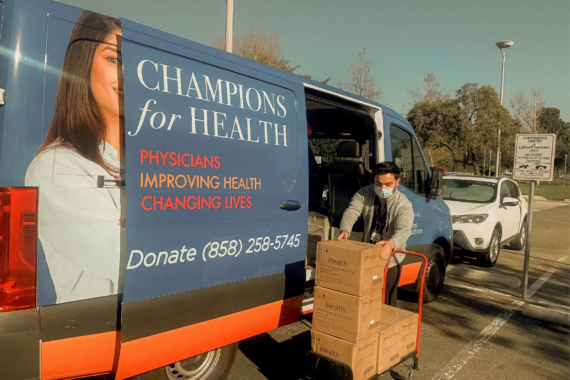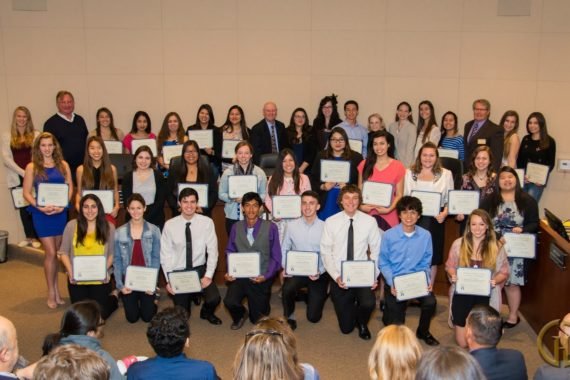The Growing Need for Rural Health Care Providers
January 26, 2021 General
As a leader in the rural and low-income community, San Ysidro Health is an innovative, dynamic health organization committed to providing services to all who need them. Originally established along the border in 1969, the organization was founded by seven women in search of medical services for their children. Fifty years later, San Ysidro Health now provides innovative services to more than 107,000 lives in their care through a vast and integrated network of 42 program sites across San Diego County.
Dr. Peter Baum, a San Ysidro Health family practice physician, shares his perspective on the importance of rural health care, and its growing need of providers.
What common challenges or barriers do you see in rural communities in terms of healthcare?
In eastern San Diego county rural communities, the current challenges and barriers in providing healthcare are largely attributed to the distance that patients need to travel to get specialty care or advanced imaging studies done when they are needed. It can be a real barrier for patients to travel up to 1 hour or more for things like CT scans, MRIs, or to see specialists like cardiologists (heart doctor) or surgeons when it’s absolutely needed. Emergency medical care is also less accessible due to the long distances people must travel.
What do you see as the biggest opportunity for rural health care right now?
For most common medical conditions, we are fortunate that we as Family Medicine Physicians can provide comprehensive care, including consultation, medication management, behavioral health referrals, x-rays, laboratories, and we perform a variety of procedures. I think that with well-trained Family Medicine physicians working in rural areas, we can provide comprehensive care, from Prenatal care to end-of-life care for patients of all ages.
How do you think medical schools/residency programs can best prepare students for rural practice?
I think that the more exposed medical students and resident physicians in their final years of training are to rural medicine, the more likely that they will be to practice in such areas. By providing clinical training in rural clinics, which is something that I hope to start doing in the near future with San Ysidro Health, the more likely we will be able to further train more physicians to work in such areas.
What are the rewards of rural family practice?
Establishing trusting and lasting relationships with patients and their families. It’s a true honor to be able to be the doctor for an entire family.
Why is it common for health providers to leave rural communities or why is it difficult to recruit them?
I think it’s difficult to recruit healthcare providers to work in rural communities because a lot of physicians in training are from more urban and suburban areas, and hence, want to keep living in such areas after they complete their training. Long commutes for physicians can be tiring and take time away from their own families.
What types of health providers are lacking in rural communities?
There is a general lack of many types of health providers in rural communities, from Family Medicine doctors, OB/GYN’s, and specialists. If anything, we definitely need more Family Medicine, OB/GYN, and psychiatrists providing care in more rural communities in the United States.
What inspired you to commit to providing care to the underserved?
I’ve always been the type of person to advocate for people of all walks of life. I am fulfilled by working with communities that truly need the medical services that I can provide. If I am able to work with my patients to empower them to be the healthiest they can be, then I know I am making a difference in the world; one patient at a time.
Anything else you’d like to share?
I am a husband, father, environmental and social justice advocate, and family medicine physician. In my free time, I enjoy spending time with family, hiking, surfing, or doing anything outdoors. I am a passionate advocate for people’s mental health and self-care.
Peter Baum, DO Biography:
Peter was born and raised near Syracuse, New York. He has always been an avid outdoorsman, environmentalist and community activist at heart. From a young age he always knew he wanted to go into medicine, yet had many additional passions. Prior to medical school, Peter received his bachelor’s degree in Behavioral Neuroscience from Connecticut College where he was active in a variety of student-led social justice organizations.
Upon completion of his undergraduate degree, he worked as an AmericorpsVISTA member directing and implementing afterschool education programs for at-risk youth in New London, Connecticut. His desire to positively impact the world, improve his Spanish and immerse himself in Latino culture, later led him to Quito, Ecuador where he lived for three years prior to starting medical school. During his time in Ecuador he worked for the environmental international development organization called Sun Mountain International, often in coordination with the United States Agency for International Development (USAID), and later as a high school biology teacher at the American School of Quito.
Peter studied medicine at Western University of Health Sciences – College of Osteopathic Medicine of the Pacific. In medical school, he was actively involved in and led student-run free clinics and taught medical Spanish to his peers. Later, he completed his residency in Family Medicine at Scripps Mercy Hospital Chula Vista in partnership with San Ysidro Health, where he enjoyed working with inspiring people who share similar values.
Upon completion of his residency training, he has committed, as a National Health Service Corps (NHSC) Scholarship recipient, to provide healthcare in underserved communities in the United States and is very excited to be a part of the San Ysidro Health team. In his free time, he enjoys trying new foods, cultural immersion, live music, traveling, surfing, and outdoor activities with his family.




